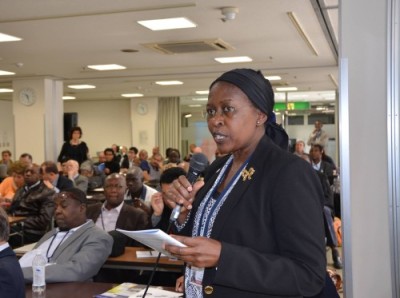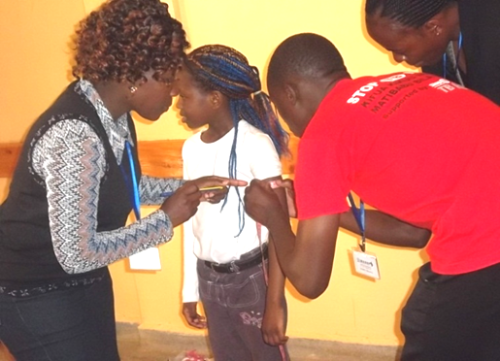
Moi University - Eldoret, Kenya

|
Moi University was established in Eldoret, Kenya’s fifth largest city, as the second Public University in Kenya by an Act of Parliament, the Moi University Act of 1984. It has advanced to be Kenya’s leading University in Teaching, Research & Development. It now has 14 schools, 5 campuses, 5 satellite campuses, 2 constituent colleges and has 17,000 students and 3,000 staff members. |
||
| Vision of Moi University: “To be recognised nationally and internationally as the university of choice in nurturing innovation and talent in science, technology and development”. The Moi University School of Public Health (MUSPH) is one of the 14 schools and was established in 1998 with the vision to become a regional and international centre for excellence in the training, research, practice and consultancy in public health. MUSPH offers a bachelors degree program in environmental health (some 140 students), a Master of Public Health program (some 60 students) and is in the process of developing terminal degrees in public health. The MUSPH mission is to produce skilled and practical health professionals and seeks to achieve this through advanced and interdisciplinary training of policy makers, medical practitioners, academicians and researchers. The School aims to take a leading role in the training of public health personnel locally and it seeks to effectively address health problems in the region, with due consideration of the diverse social, economic, political and biological environments. |
 |
|
MUSPH’s objectives are to:
|
 |
The Community-based Education and Service (COBES) program at Moi University has been a mandatory part of the school of public health curriculum since its inception. The COBES program aims to provide relevant training of health professionals as well as serve surrounding communities. Medical, nursing, public health, pharmacy and dentistry students participate in the program to gain practical experience at all levels of the government health system—from the community to district level facilities—in both rural and urban settings. The COBES program serves residents in three provinces, namely Rift Valley Province (North Rift), Western Province and Nyanza Province. There are 22 rural health centers within 11 districts and 19 urban health centers within 19 districts. The COBES program is comprised of a series of distinct courses taken throughout the student’s academic program. All but one of the COBES courses has a classroom or theory component that must be completed before beginning the practical or “clinical” component in the field. The courses introduce students to community health, conducting a community diagnosis, development of a research proposal, working with district health management teams, and implementation of interventions. |
| Commissioned Research |
| Local Government Self-Assessment Tool (2014 – On going) commissioned by UNISDR |
| Academic Programmes offered: |
| The programmes offered are designed for public health managers and aspiring professionals providing them relevant knowledge and skills in the field of Disaster Management and preparedness in a multidisciplinary manner. |
| Undergraduate courses |
The school offers a four-year degree programme leading to the award of Bachelor of Science in Environmental Heath. This programme aims at producing a graduate that is capable of addressing environmental health issues and problems from a global perspective with a view to proposing solutions in the provision of health care.
|
Postgraduate programmes
The MPH programme provides a comprehensive training to students for addressing the various challenges of public health in a disaster situation. It focuses specifically on the following thematic areas:
|
|
Short Courses The partners at Moi University have hosted three short courses which were focused on;
|



